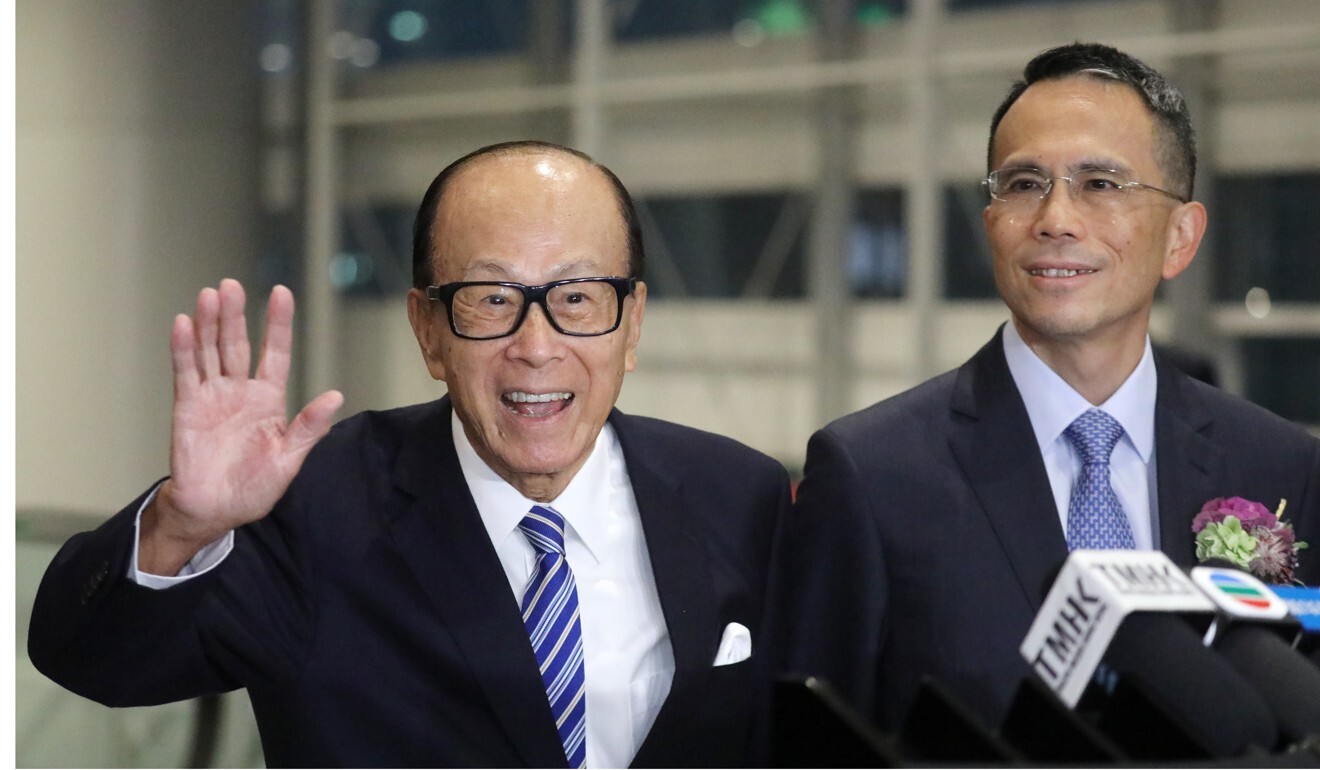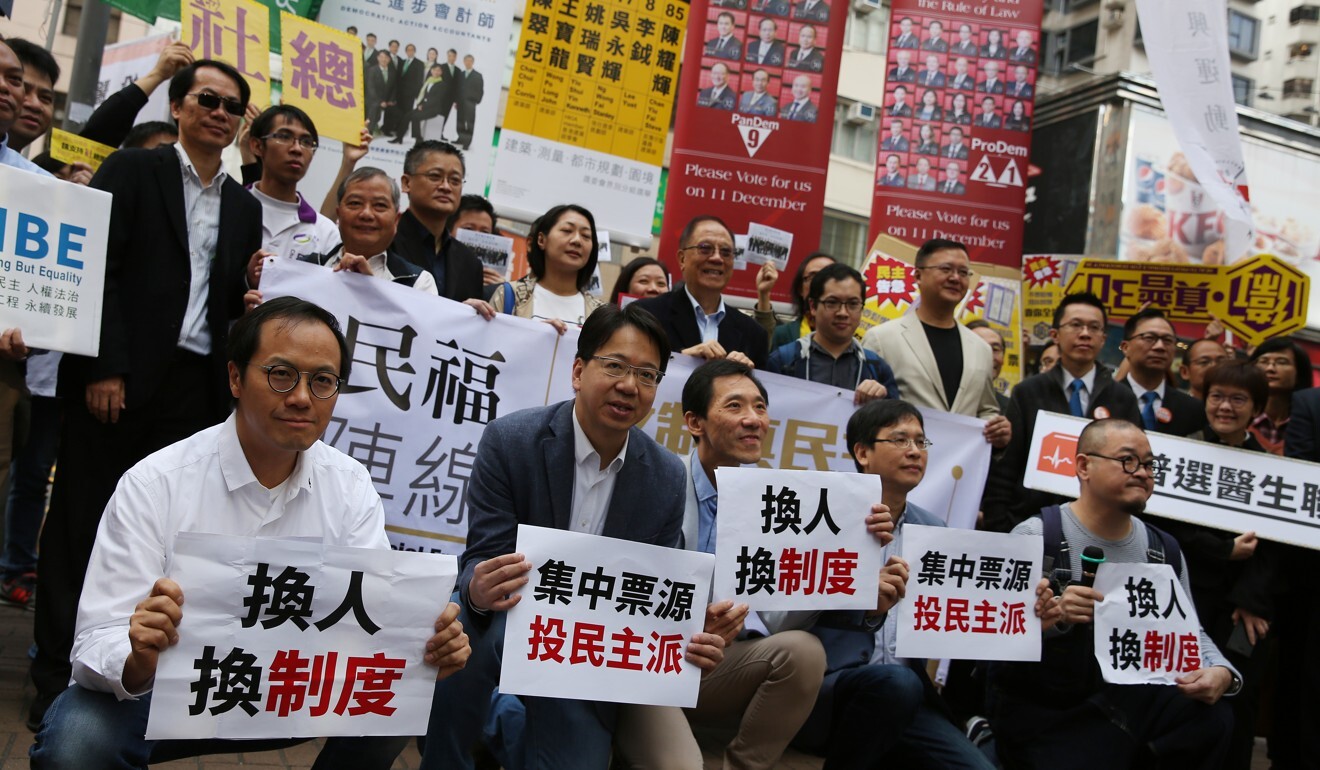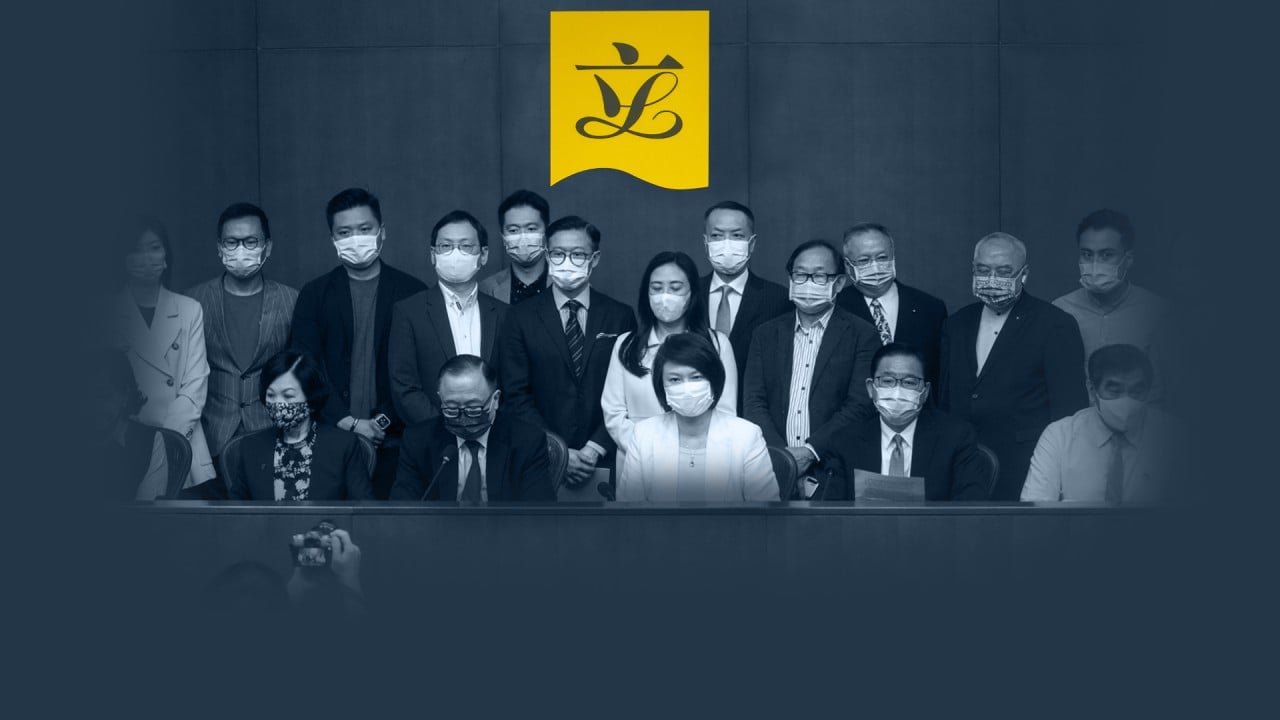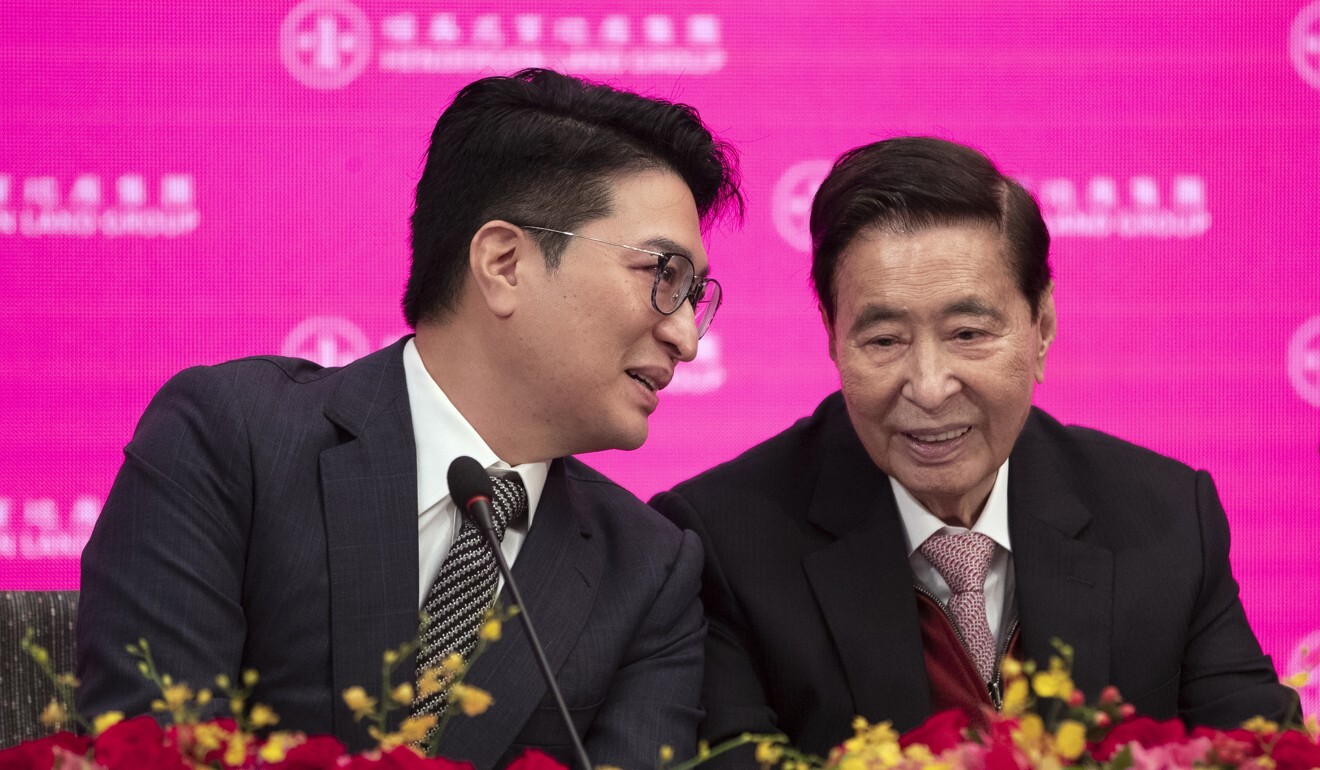
Record number of uncontested seats for Hong Kong Election Committee polls – and Li Ka-shing is not throwing his hat into ring, for the first time since 1997
- Authorities receive a total of 1,056 nominations, competing for more than 980 seats on the 1,500-strong committee
- Notable difference is changing of the guard in business-related sectors, with several prominent tycoons not seeking re-election
Analysts said the record number of uncontested seats – the highest since the city’s return to China in 1997 – was in keeping with Beijing’s insistence on a “no surprises” zero-risk approach in the selection of the next chief executive.
Coordinated nominations among the sectors had clearly taken place, they said, as the central government’s preference was to encourage cooperation rather than competition among the political elites. The net effect would be to avoid any eventual splitting of votes in the chief executive race as had happened previously, analysts added.
What you need to know about Hong Kong’s electoral changes
A notable change in the composition of the committee is the changing of the guard in business-related sectors, with several prominent tycoons deciding not to seek re-election. Billionaires Li Ka-shing, 93, Lee Shau-kee, 93, Peter Woo Kwong-ching, 74, and Henry Cheng Kar-shun, 74, did not throw their hat into the ring this time, marking the first time since 1997 that Li, for example, would no longer be on the committee.

Instead, their children were joining the race, mostly in the real estate and construction subsector — along with a number of mainland China-affiliated businessmen, signalling a new and rising presence on the committee.
Marking the first election to be held under the revamped electoral system imposed by Beijing in March to ensure only “patriots” can hold political office, authorities received a total of 1,056 nominations on Thursday, competing for more than 980 seats, as the remainder are ex officio members.
Election Committee hopefuls vow to tackle Hong Kong’s root problems
The revamped committee is now tasked not just with picking the city’s leader, but also nominating lawmakers, and even fielding representatives of its own to the legislature.
There are altogether 40 subsectors representing the different professions and trades in Hong Kong, each with a different number of seats, on the committee. A poll for a subsector will only be held on September 19 if the number of candidates – who subsequently get through a newly introduced official vetting process – exceeds the number of members to be elected.
As the one-week nomination period ended on Thursday, only 13 of the 40 subsectors – carrying a total of 371 seats – will face competition. These include the legal, education, medical and health services, social welfare, labour, insurance, commercial (third), Chinese medicine, financial services, and architectural, surveying, planning and landscape subsectors.
Two newly formed subsectors — which carry a total of 156 seats and include representatives of members of district-based area committees, crime-fighting committees and fire safety committees of Hong Kong, Kowloon and the New Territories — also have more candidates than seats.
In 2016, the opposition camp formed a team called “Democrats 300+” and swept all seats in several subsectors, including education, higher education, legal, social welfare, information technology and health services.

But any such contests are likely to be muted and limited this time, as overall, at least 1,193 seats in the 1,500-body will have winners getting onto the committee without challenge. In 2016, only 449 seats of the then 1,200-member committee went uncontested or were walkovers.
The “toughest” competition will be in the medical and health services sector, with 24 candidates competing for 15 seats, while 72 people will fight for 60 seats in the labour sector.
The state of play stood in stark contrast to the polls five years ago when 25 of 38 subsectors faced competition and a total of 246,000 voters registered to cast ballots. The number of voters was slashed to only 7,900 voters this time, as individual voting has been replaced by corporate voting.
Most of the subsectors were packed by pro-establishment figures, as many key players in the opposition camp chose not to contest not only because the electoral changes had severely disadvantaged them, but they also did not want to subject themselves to a vetting process they believed was stacked against them.

05:10
Hong Kong's revamped electoral system bolsters pro-Beijing influence in key decision-making bodies
The only few exceptions included Tik Chi-yuen, chairman of the centrist Third Side party. He was the first person not from the pro-establishment camp to participate in the election, and will be running in the social welfare subsector with nine nominations.
Lau Siu-kai, vice-president of the semi-official Beijing think tank Chinese Association of Hong Kong and Macau Studies, said a candidate list dominated by the pro-establishment camp was to be expected, so that there would be no risk in the chief executive election race in picking someone not preferred by Beijing.
“Beijing would also enjoy seeing cooperation in sectors, so that only elites could run and become candidates,” he said.
Education group vows to break opposition ‘monopoly’ on Election Committee subsector
Under the revamped system, the chief executive-elect must obtain more than 750 votes – half of the committee – in the poll, and be appointed by the central government.
Leung Che-cheung, a pro-establishment lawmaker, added that some of the candidates might be unfamiliar with the new rules and so did not dare to participate in the election without getting the green light from the central government or the camp.

John Burns, a politics and public administration emeritus professor at the University of Hong Kong, said Beijing’s aim with the overhaul of the electoral system was to produce “expected” results.
“This sort of system does not value competition,” he said. “A few subsectors will have some sort of competition … [but] because only corporate voting is permitted for most subsectors, the party can and undoubtedly will coordinate the outcome to produce ‘expected’ results.”
Who are the ‘patriotic sector’ voters of Hong Kong’s powerful Election Committee?
Analysts also noted the passing of an era with the city’s most famous tycoon, Li, senior adviser for CK Hutchison Holdings and CK Asset Holdings, not on the committee — a signal the relationship between Beijing and the business magnates was also changing.
“Li has said he would only focus on charity work after retiring in 2018,” a source said.

Adam Kwok Kai-fai of Sun Hung Kai Properties, Martin Lee Ka-shing of Henderson Land Development and Adrian Cheng Chi-kong of New World Development were all seen running in the uncontested real estate and construction subsector. More than 20 directors and representatives from these big developers also ran in different subsectors.
Legislator Felix Chung Kwok-pan, leader of the pro-business Liberal Party, said the stepping down of some leading tycoons proved the successful “handover” within families.
But Lau, the pro-Beijing scholar, said while the central government still valued their contribution, their reduced domination on the committee and the increased participation of mainland affiliations proved that the billionaires’ importance was diminishing.
“Beijing did not want them to have too much power,” he said. “Only the central government can determine the election results from now on.”
Among the new “patriotic” figures who had put up their hands to join the committee, many did so in the 17-seat commercial subsector formerly named the “Hong Kong Chinese Enterprises Association”.
They included asset management firm China Everbright’s Chiu Kwan, China Overseas Property managing director Tony Yau Wai-kwong and Taiping Reinsurance deputy general manager Tommy Yiu Loi-man.
Additional reporting by Ngai Yeung and Sammy Heung

